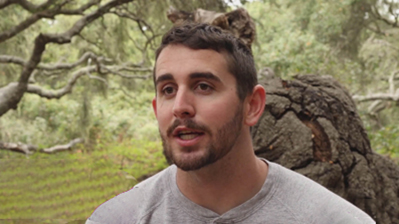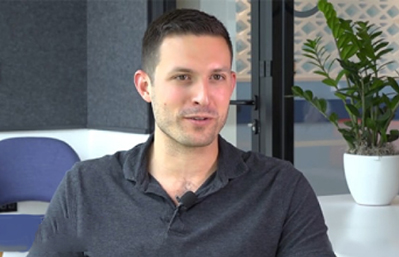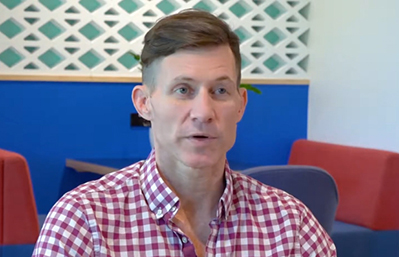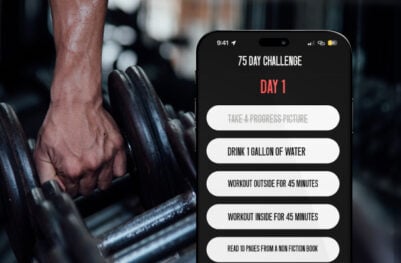- Developers
- Developer Blog
- Blockchain Development
- How to Build a Blockchain Music App?
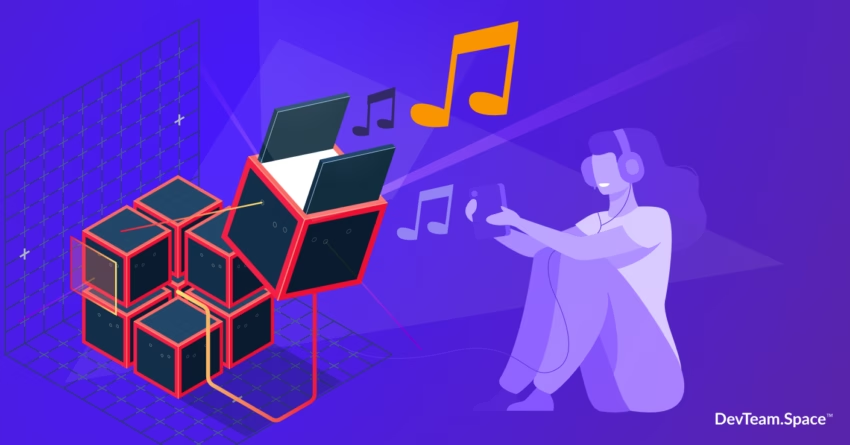
profile

By Aran Davies
Verified Expert
8 years of experience
Aran Davies is a full-stack software development engineer and tech writer with experience in Web and Mobile technologies. He is a tech nomad and has seen it all.
Interested in learning how to develop a blockchain music app?
This is an excellent market with many opportunities to be explored.
App Features desired in a blockchain platform for the music industry
When you create a blockchain for the music industry, you need to offer the following key features in the app:
- Artists should be able to upload their content in a secure manner.
- The app enables listeners/viewers to view music streams on the platform before selecting a song and creating playlists.
- The streaming service should offer cryptocurrency-based payments to artists.
- Music fans should have full access to their favorite artists.
- Upon the download of a song, payments should be processed with the help of smart contract technology.
- The platform should keep transactions and accounting transparent using blockchain.
- The platform should let the independent artists keep most of the streaming revenue they generate so they are paid fairly.
- Listeners/viewers shouldn’t have to contend with ads. Streaming platforms should consider other monetization options. For e.g., artists can set up an agreement with their fans to share revenue if fans share music, helping it to reach a wider audience.
- A simple user interface (UI) is important.
Read “Blockchain music platforms: a new paradigm” for more details on the desired features.
How to create a blockchain platform for the music streaming services industry
Developing a music streaming platform requires a deep understanding of blockchain technology. If you don’t have a professional team with relevant expertise to take on a task like this, why don’t you submit a request for a complimentary discovery call? One of our tech account managers who has experience in handling blockchain-based streaming projects will contact you shortly.
Now let’s explore how to create a blockchain platform for streaming services. I will outline the Ethereum ‘Distributed App’ (DApp) approach to developing a fully decentralized streaming platform for the music industry. A DApp is like a web app, except that it runs on a decentralized blockchain network.
While the front-end of the app can be coded in any popular language, the backend must incorporate smart contracts. This requires a special skill set.
A DApp should also be open-source and store data in a decentralized blockchain that adheres to the required cryptographic standards.
DApps must use a crypto token, however, no one entity should control the majority of tokens. All enhancements to a DApp must be based on the consensus of the user community.
Hire expert developers for your next project
Read more about DApps in “What Are Dapps? The New Decentralized Future” and find out what the future of Dapps will bring.
The development approach consists of the following steps:
- Build a capable team.
- Design and build a UI.
- Use a blockchain network like Ethereum.
- Code smart contracts and crypto tokens.
- Test and deploy smart contracts and the DApp.
A team to develop a blockchain music distribution platform
Firstly, you need to build a team consisting of business analysts, UX/UI designers, web developers, Ethereum blockchain developers, and testers.
You also need a PM with knowledge of project management best practices. Our guide “Project management: 10 best practices” can help if you have no background in this.
While UX/UI designers, web developers, and testers are relatively easy to find, blockchain developers’ skills are a niche skill set. Finding quality blockchain developers can be tough. Allow yourself plenty of time to do this.
Also, you might find yourself even needing to train them on specific elements of blockchain technology yourself. Smart contracts in particular are very challenging.
Start with the Ethereum development tutorial. The Loom Network offers CryptoZombies. This interactive DApp development training is another key resource for developers.
Ethereum DApps will require smart contracts. On the Ethereum network these are coded in the Ethereum proprietary language, Solidity. Your team needs this skill set. This Blockgeeks Solidity course is useful if you are looking for a place to start.
Business requirements analysis, UI design, and front-end development will be the same as when developing any other web app. Assuming you have the experience to develop these, I will now describe how you can set up the Ethereum development environment and connect your app to the Ethereum blockchain.
Create an Ethereum account:
To implement your DApp on the Ethereum blockchain and run it, you need Ether (ETH). For this, you need an Ethereum account and a wallet address. There are two types of Ethereum accounts, i.e., ‘Externally Owned Accounts’ (EOAs) and ‘Contract Accounts’. You need an EOA.
You can easily do this using the ‘eth-lightwallet’. It’s an easy-to-use wallet. It requires you to create your private and public keys. Secure your private key.
Check the eth-lightwallet documentation for instructions. You will need to buy Ether to deploy your smart contracts as the Ethereum network requires gas payments (processing charges) to be paid in Ethereum.
Install the required DApp development tools:
This project requires you to install a few important tools, as follows:
“TESTRPC” “Ganache”
“testrpc” “Ganache” is an easy-to-use Ethereum blockchain client, with a ‘Command-Line Interface’ (CLI). Install, set a block-mining interval, and take the other configuration actions, by following their GitHub instructions.
“WEB3.JS”
You will use “web3.js” to communicate with the Ethereum blockchain. Install it and configure the ‘aconfig.js’ file. They offer web APIs. Configure these too, for ease of use. Check out their installation and configuration instructions.
Hire expert developers for your next project
1,200 top developers
us since 2016
“TRUFFLE”
This is a well-known tool for testing and deploying Ethereum smart contracts. The tool has different folders for your different projects, furthermore, it makes testing and deployment easy. Find their installation and configuration instructions.
After installing these tools, open “Ganache”, and update your “config.js” file with your eth-lightwallet private and public keys. This guide “Getting started as an Ethereum web developer” has the necessary instructions.
Creating a crypto token for blockchain platforms
You need a crypto token for the artists and consumers to transact. A crypto token is also a mandatory requirement of a DApp. Read “How to issue your own token on Ethereum in less than 20 minutes” to find out how you can create an ERC 20 token.
You will want to be on the right side of the regulations when you market your project. In the US, the ‘Securities and Exchange Commission (SEC) requires that blockchain start-ups selling tokens as investment instruments register them as securities.
Please consult our guide “Utility tokens vs. security tokens comparison guide“. Keep in mind that other countries may have their own regulations.
Code smart contracts
You now need to code smart contracts for your blockchain music streaming platform. Smart contracts are open-source pieces of code with “If-Then-Else” statements. They execute automatically based on triggers and can be programmed to transfer crypto assets based on the fulfillment of predetermined conditions.
Smart contracts are stored in the blockchain database, therefore, once added, they can’t be tampered with. Their execution results are also stored on the blockchain. Their execution is irreversible. Read more about them in “What is a smart contract?“.
Keep the logic of your smart contracts simple. This helps you to test them since simpler code is easier to debug.
You also pay less “gas price” if your smart contract is simple. The gas price is the Ether you pay to execute any smart contracts on Ethereum. The higher the complexity of smart contracts, the more gas price you need to pay.
To get ideas from other music platforms, you can review their smart contracts, as follows:
Get the smart contracts audited by experienced reviewers
You can’t modify smart contracts after you deploy them, moreover, you can’t override their execution results. This makes it very important to test them thoroughly.
The testing process can’t detect all defects though. Furthermore, you want to identify defects as early as possible. We recommend you have a thorough review of your smart contracts even before you test them.
How to review smart contracts?
A review or audit of smart contracts involves the following:
- Locking down the latest version of the source code;
- Understanding the project and studying project documentation;
- Conducting a preliminary code review;
- Performing a static code analysis;
- Carrying out a code quality analysis;
- Looking for known vulnerabilities;
- Analyzing the functionality;
- Reporting the issues and tracking them to closure.
Which known vulnerabilities should you look for in your smart contract?
As we have explained in our guide to blockchain code audits, you should look for the following vulnerabilities:
- Reentrancy;
- Storage pointers that are vulnerable to exploitations;
- Under-flows and overflows;
- Shadowing of variables;
- Access control issues;
- The lack of checking of the return values for low-level calls;
- DoS (Denial of Service);
- Generating random numbers incorrectly;
- Front-running;
- Manipulation of timestamp;
- Validating cryptographic signatures incorrectly.
Smart contract testing
Use MetaMask, a browser extension, and a crypto wallet. You need to test your smart contracts on Ropsten, a test network for Ethereum.
Hire expert developers for your next project
You don’t need real Ether on Ropsten. Dummy Ethers are enough for testing smart contracts, and you can get them on the MetaMask Ether Faucet.
Smart contract deployment
You now need to use the Ether you have purchased to pay for the ‘gas price’ for deploying your smart contracts. To deploy your smart contracts onto the Ethereum mainnet, i.e., the main network, you need to use Ganache, Web3.js, and Truffle.Read “How to deploy a smart contract on Ethereum” to know how you can test and deploy your smart contract.
Building a scalable DApp:
You will need your DApp to scale as your transaction volume increases. While it’s known that public blockchain networks like Ethereum have scalability issues, a few remedies are available. One such remedy is to use side chains for DApps.
Loom Network offers ‘Software Development Kits’ (SDKs) to build DApps on ‘DAppChains’, i.e., sidechains for individual DApps. Read more about scaling your DApp in “How to scale an Ethereum DApp“.
Looking forward to Blockchain Music App Development?
Trade surrounding the music industry is flourishing with apps like Apple Music. The idea of a royalty management platform that is fair to both artists and fans is getting popular in the music ecosystem. Tokenized Rights Management Payment is an example where royalty payments can be executed automatically, music creators earn from investments by the users, and users do so by purchasing tokens.
Open Music Initiative, an NGO, is advocating for an open music protocol so that music artists get their fair music royalties. VOISE is another example that helps indie artists earn by monetizing their music in a peer-to-peer marketplace.
Big names such as Warner Music Group are investing in blockchain-based music distribution technology to stay ahead of the game.
While it is not as straightforward as building a web or app solution, you can create a blockchain music platform to help attract music lovers and transform the music industry provided that you have the right expertise in your team.
It’s a complex development project that you will need to manage from end to end unless you outsource the project.
If you do feel that it is too complicated for your existing team and that you need to supplement your team with additional developers or dev teams, then why not take a moment to let DevTeam.Space know about your project requirements via this link and one of our dedicated account managers will get in touch to show you how we can help.
Frequently Asked Questions on blockchain in the music and tech industry
Blockchain technology is safer than many existing database solutions at the current time. The immutability of records thanks to any changes requiring 51% of the network to approve such changes means that blockchain data is also more trustworthy.
The blockchain technology applications include decentralized medical records, cryptocurrencies, automated supply chains, automation of property and real estate transfers, and decentralized music streaming platforms, to name but a few.
Music industry blockchain solutions will allow music creators, music publishers, and music rights holders to protect their music videos and record labels from theft by acting as a decentralized database on which they can record their ownership. This will save artists millions of dollars a year in lost revenue and royalty payments.

Alexey Semeney
Founder of DevTeam.Space
Hire Alexey and His Team
To Build a Great Product
Alexey is the founder of DevTeam.Space. He is award nominee among TOP 26 mentors of FI's 'Global Startup Mentor Awards'.
Hire Expert Developers
